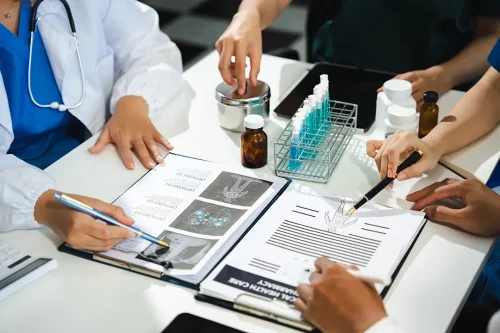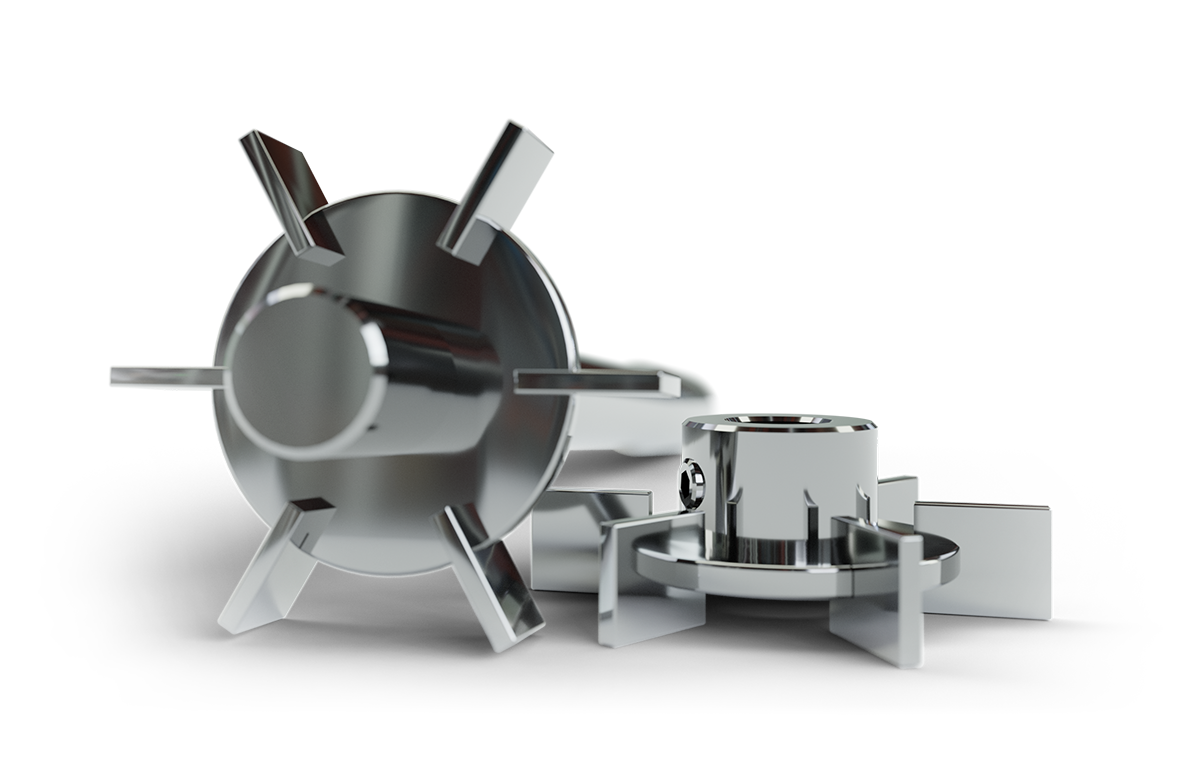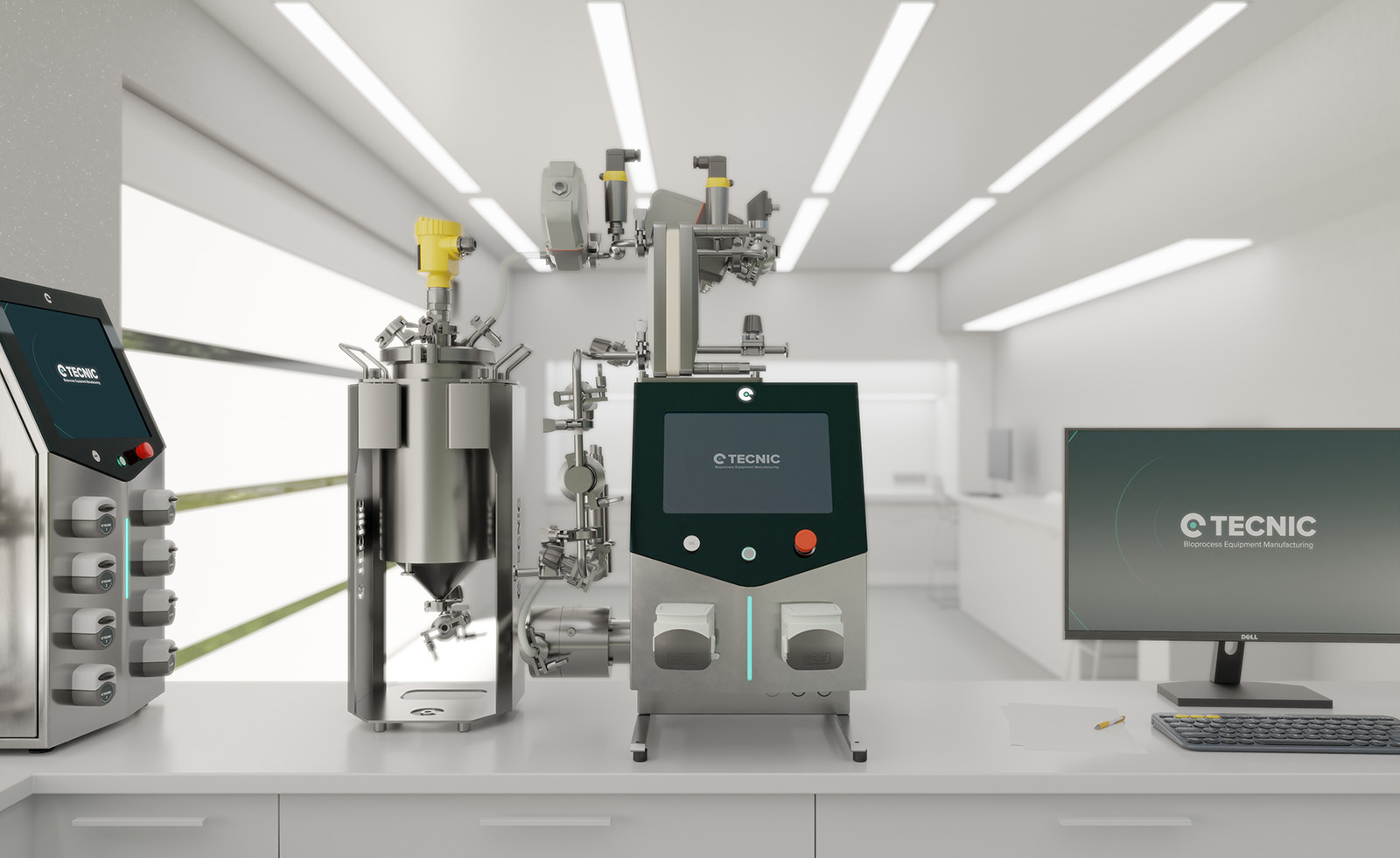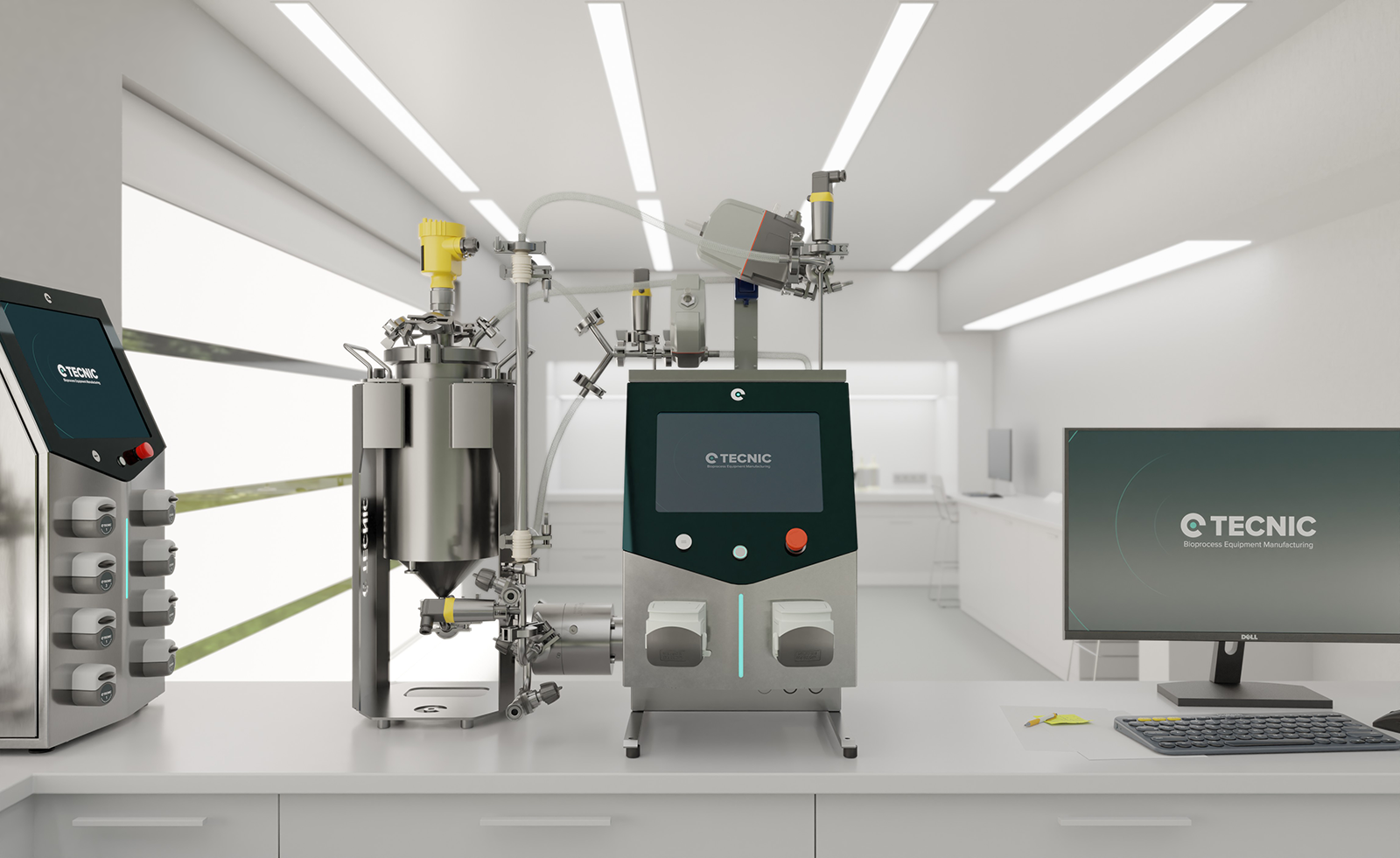The biopharmaceutical industry is at the forefront of medical innovation, yet it faces significant challenges in drug discovery and development. Traditional methods are often time-consuming, expensive, and fraught with high failure rates. Enter artificial intelligence (AI)—a transformative technology that is revolutionizing how we discover, develop, and deliver new medications.
At TECNIC, we delve into how AI is reshaping the biopharma landscape, offering unprecedented opportunities to enhance efficiency, reduce costs, and ultimately improve patient outcomes.
Table of contents
- The challenge of drug discovery
- How artificial intelligence is transforming the landscape
- The challenge of drug discovery
- How artificial intelligence is transforming the landscape
- Success stories in the industry
- Key benefits of artificial intelligence in biopharma
- Challenges and ethical considerations
- The future of artificial intelligence in biopharma
- How to prepare for this revolution
- Conclusions
The challenge of drug discovery
Developing a new drug is an intricate process that involves multiple stages:
- Discovery and Preclinical Testing: Identifying potential compounds and testing them in the lab and on animal models.
- Clinical Trials: Conducting rigorous testing on human subjects across multiple phases to assess safety and efficacy.
- Regulatory Approval: Submitting data to regulatory bodies like the FDA or EMA for approval before the drug can reach the market.
Key Challenges
- Time-Consuming Processes: On average, it takes 10-15 years for a drug to go from concept to market.
- High Costs: The total cost can exceed $2.6 billion, considering the expenses of failed trials.
- Low Success Rates: Only about 10% of drugs that enter clinical trials make it to market.
- Complex Diseases: Conditions like cancer, Alzheimer's, and autoimmune diseases are multifaceted, making target identification challenging.
- Data Overload: The explosion of biological data has outpaced the ability of traditional analytical methods to process and interpret it.
These challenges highlight the urgent need for innovative solutions to streamline drug discovery and development.

How artificial intelligence is transforming the landscape
AI brings a suite of advanced computational techniques that can process vast amounts of data, recognize patterns, and make predictions with high accuracy. Here's how AI is making a significant impact:
The challenge of drug discovery
Developing new drugs is a lengthy, costly, and high-risk process:
- Extended Timeframes: It can take between 10 and 15 years from initial discovery to final approval.
- High Costs: The average cost of developing a drug exceeds a billion dollars.
- Low Success Rates: Only a fraction of investigated compounds make it to market.
These challenges underscore the need for innovations that can optimize the process.
How artificial intelligence is transforming the landscape
Molecule Discovery and Design
AI enables the analysis of vast datasets to identify promising compounds:
- Deep Learning Algorithms: Can predict how compounds will interact with specific biological targets.
- Molecular Modeling: Simulates interactions at the atomic level to optimize efficacy and minimize side effects.
Clinical Trial Optimization
AI enhances the efficiency of clinical trials by:
- Selecting Ideal Patients: Analyzes medical and genetic histories to identify optimal candidates.
- Real-Time Monitoring: Allows rapid adjustments based on up-to-date data during the trial.
Drug Repurposing
Uses AI to find new applications for existing drugs:
- Multidimensional Data Analysis: Discovers hidden relationships between diseases and treatments.
- Process Acceleration: Reduces time and cost compared to developing a drug from scratch.
Success stories in the industry
- DeepMind and AlphaFold: Revolutionized protein structure prediction, facilitating drug design.
- Insilico Medicine: Discovered a new compound in just 46 days using AI, an unprecedented achievement.
- Atomwise: Utilizes AI to identify potential treatments for diseases like Ebola and multiple sclerosis.
Key benefits of artificial intelligence in biopharma
- Improved Efficiency: Significantly reduces research and development time.
- Reduced Costs: Optimizes resources by focusing efforts on compounds with higher success probabilities.
- Accelerated Innovation: Facilitates the discovery of therapies for complex or rare diseases.
Challenges and ethical considerations
Data Quality and Bias
- Incomplete or Biased Data: Can lead to erroneous results.
- Need for Standardization: Ensure data is high-quality and representative.
Transparency and Explainability
- Algorithmic Black Box: Difficulty in understanding how AI reaches certain conclusions.
- Regulations: Need to comply with norms requiring transparency in medical processes.
Data Privacy and Security
- Protection of Sensitive Information: Safeguarding patients' genetic and medical data.
- Legal Compliance: Adherence to laws like GDPR in Europe.
The future of artificial intelligence in biopharma
Collaboration between AI and the biopharma industry promises:
- Personalized Medicine: Treatments tailored to each individual's genetic profile and lifestyle.
- Early Disease Detection: Use of AI in early diagnostics and prevention.
- Continuous Innovation: Development of therapies for currently incurable diseases.
How to prepare for this revolution
- Investment in Technology: Companies must adopt AI tools to remain competitive.
- Training and Talent: Educate professionals in interdisciplinary skills combining biology and data science.
- Cross-Sector Collaboration: Partnerships between tech companies, pharmaceuticals, and regulatory bodies.
Conclusions
Integrating artificial intelligence into the biopharma industry is redefining the drug discovery and development process. While challenges exist, the potential benefits for health are immense. At TECNIC, we will continue to inform you about how these innovations are shaping the future of medicine.
Frequently Asked Questions (FAQ)
AI is used for drug discovery, molecular design, optimizing clinical trials, and drug repurposing by analyzing large datasets to identify promising compounds.
Benefits include faster research, reduced costs, accelerated innovation, and the advancement of personalized medicine.
AI selects ideal participants, monitors trials in real-time, and predicts outcomes to optimize trial design.
Challenges involve data quality, transparency in AI decisions, data privacy, and regulatory compliance.
Considerations include patient privacy, preventing algorithmic bias, and ensuring transparency in AI decisions.
Information sources
U.S. Food and Drug Administration. (s.f.). Artificial Intelligence and Machine Learning (AI/ML)-Based Software as a Medical Device.
Mak, K. K., & Pichika, M. R. (2019). Artificial Intelligence in Drug Development: Present Status and Future Prospects. Molecular Pharmaceutics, 16(6), 2397–2406.
Vamathevan, J., Clark, D., Czodrowski, P., et al. (2019). Applications of machine learning in drug discovery and development. Drug Discovery Today, 24(5), 941–955.










